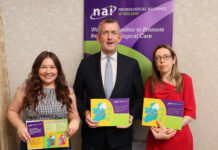

However, the true statistics for Limerick is likely to be significantly higher as some 365 women from Ireland did not give an address.
Overall, 3,735 women with Irish addresses travelled to England or Wales for a termination last year, an increase on the 2013 figure of 3,679, marking the first year-on-year rise in the number of terminations among Irish residents since 2001.
The majority, 41 per cent, gave Dublin addresses, with a further ten per cent giving addresses in Cork.
The Limerick figures increased by four from 106 in 2012, but the longer term statistics indicate a decrease in the number of women travelling to the UK for abortions from the city and county in recent years.
In 2011, 130 women gave Limerick addresses, with 159 stating Limerick as their county of residence in 2010.
In terms of county breakdown, Limerick had the sixth highest number of women obtaining an abortion in England and Wales.
Meanwhile, a report on Ireland’s abortion regime released by Amnesty International on Tuesday concluded that it “violates the human rights of women and girls”.
The report, entitled ‘She Is Not A Criminal: The impact of Ireland’s abortion law’, said that despite the enactment of the Protection of Life in Pregnancy Act last year, Ireland is not complying with its international obligations on human rights.
It also said that the rights of Irish women and girls to life, health, equality, non-discrimination, privacy, information, and freedom from degrading treatment are all being violated.
Amnesty International described Ireland’s abortion laws as among the most restrictive in the world.
The report called on the Irish Government to introduce legislation to allow terminations in cases where the mental or physical health of the woman is at risk; in cases of fatal foetal abnormality and in cases of rape or incest.









